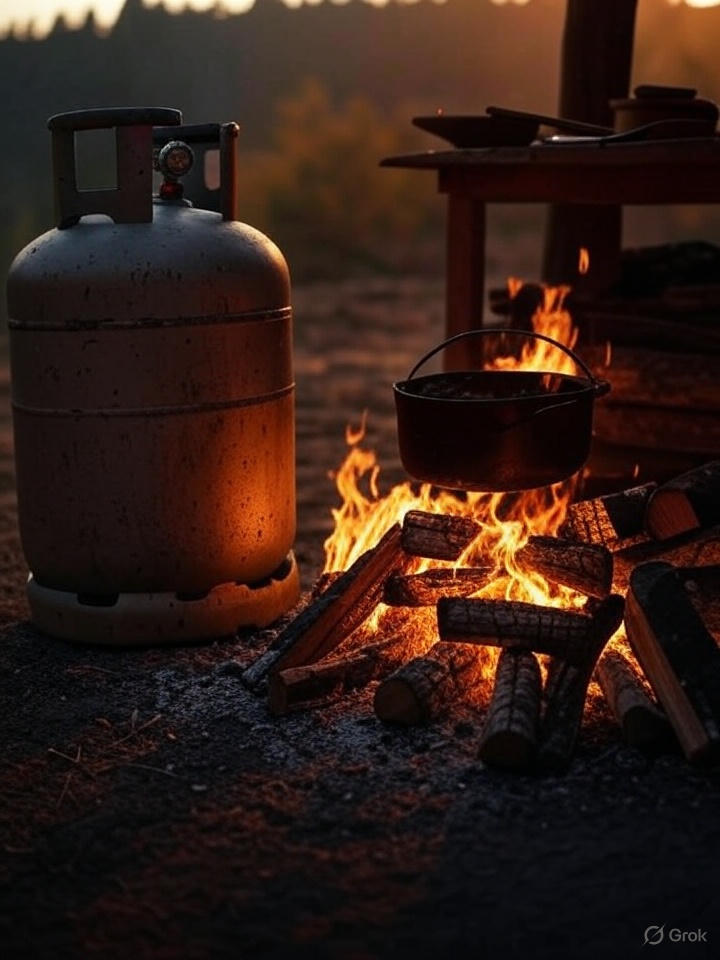
Daniel Otera
More Nigerian households are returning to firewood, charcoal, and kerosene as the cost of cooking gas continues to rise undermining over a decade of clean energy advocacy.
The latest figures from the National Bureau of Statistics (NBS) show that the average price of a 12.5kg Liquefied Petroleum Gas (LPG) refill jumped by ₦5,274.29 in one year from ₦15,736.27 in June 2024 to ₦21,010.56 in June 2025. That’s a 33.52 per cent increase, at a time when inflation and stagnant household income are already squeezing families.
For those using 5kg cylinders, the average refill price rose from ₦6,966.03 to ₦8,323.95, a 19.49 percent rise within the same period.
Across many communities, gas cylinders are now being abandoned.
“I switched to gas three years ago to stop buying charcoal,” said Mrs Jumai Yakubu, a mother of five living in New Nyanya, Nasarawa. “Now I’m back to firewood. Gas is fast, yes, but it’s no longer affordable. Before, we bought gas at ₦700 or ₦800 per kg. Now, it’s ₦1,500.”
The NBS report based on data from over 10,000 gas retail outlets across Nigeria’s 774 local government areas also showed month-on-month increases. Between May and June 2025, the average 12.5kg refill price rose by 1.46 per cent, while 5kg climbed by 1.92 per cent.
The steepest prices were recorded in Delta, Cross River, and Rivers States, where residents paid more than ₦9,000 for 5kg refills and over ₦22,900 for 12.5kg. Delta State posted the highest national averages: ₦23,108.44 for 12.5kg and ₦9,243.38 for 5kg.
By contrast, Yobe and Oyo States recorded the lowest averages: ₦19,000 for 12.5kg and ₦7,100 for 5kg though these are still far higher than figures from just a few years ago.
A food vendor in Nasarawa, Mrs Aisha Adamu, shared a similar story:
“We used gas because it was cleaner and saved time. But now, with every refill, the price goes up. I had to switch to firewood. The problem is, during the rainy season, the ground is wet and it’s hard to light the fire. But it’s still cheaper than gas, especially if you’re cooking a lot of food for sale.”
For over a decade, Nigerian government agencies and civil society groups have pushed for households to abandon traditional fuels, citing the health risks of indoor smoke and the environmental impact of deforestation.
But that shift is now stalling and in some regions, reversing as LPG becomes unaffordable for low-income families.
The World Health Organization (WHO) estimates that nearly four million people die annually from diseases caused by indoor air pollution, much of it linked to cooking with biomass fuels such as firewood and charcoal. In Nigeria, this practice remains widespread, especially in rural areas.
Zonal data from the NBS reveals stark price disparities across regions. In June 2025:
South-South zone had the highest averages: ₦8,871.63 for 5kg and ₦22,179.08 for 12.5kg
South-West recorded the lowest averages: ₦7,960.42 (5kg) and ₦20,402.42 (12.5kg)
Speaking to The Guardian Nigeria, Anibor Kragha, Executive Secretary of the African Refiners and Distributors Association (ARDA), warned:
“If the structural and policy barriers are not addressed, LPG will remain out of reach for the majority of low-income families.”
A policy brief by Friends of the Environment (FOTE) echoed this concern, noting that affordability is becoming a major obstacle despite Nigeria’s vast gas reserves.
A report by The Journal noted:
“Every morning, millions of African women walk into forests, fields, or dumpsites not in search of food or medicine, but of fuel. It is a daily ritual as old as the continent itself, one that is quietly costing Africa not just lives, but its future.”
The International Energy Agency (IEA) estimates that over one billion Africans still rely on wood, charcoal, dung, and other polluting fuels for cooking. The consequences include premature deaths, deforestation, and lost economic productivity.
“It is one of the greatest injustices of our time, especially in Africa,” said Fatih Birol, Executive Director of the IEA. “Hundreds of millions of people are still cooking meals in ways that harm their health, the environment, and their futures.”
The IEA puts the number of premature deaths from unsafe cooking in Africa at around 815,000 per year, with women and children disproportionately affected due to prolonged exposure to toxic smoke in poorly ventilated spaces.
A May 2024 Reuters report, citing IEA data, warned that nearly 80 per cent of African households still use biomass fuels for cooking and that without targeted public investment, the clean cooking transition may not only stall but reverse, particularly in rural Nigeria.
“Gas is the future of clean cooking in Nigeria,” said an energy analyst who reviewed the NBS data, “but the pricing must reflect the income realities of households.”
With rising LPG prices, weak regulation, and no targeted subsidies, millions of Nigerian families now face a difficult choice: clean energy or daily survival.
